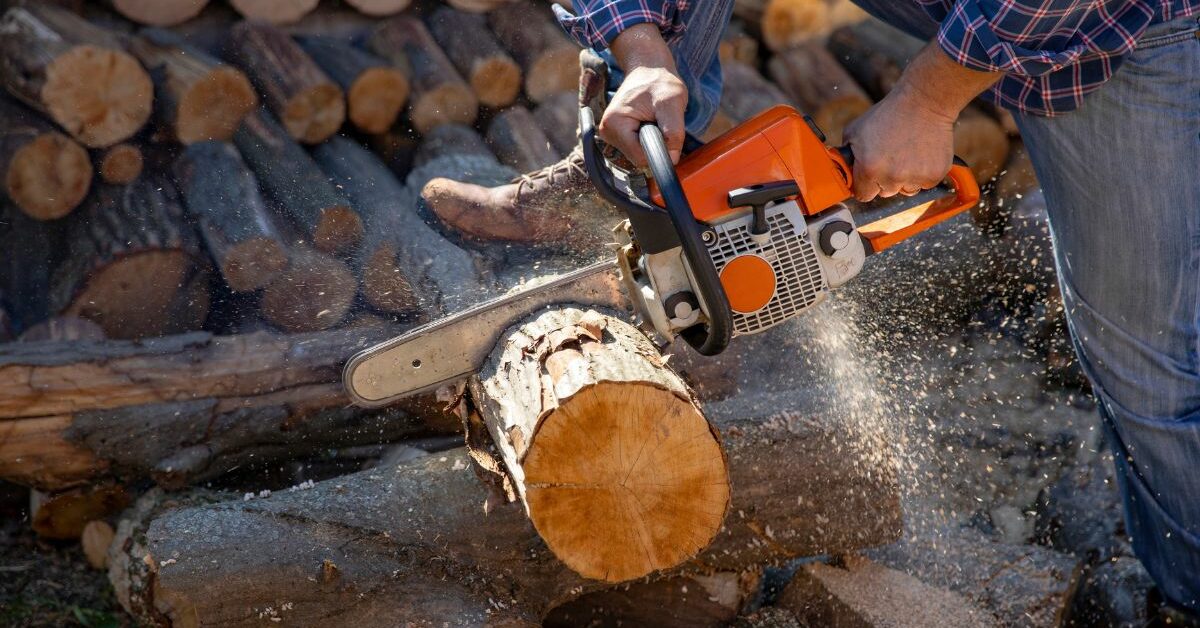How To Become A Lumberjack?
If you love the outdoors and want to earn a living working in a challenging, physically demanding industry, lumberjacking may be the perfect career for you. This article explores the steps you need to take to become a lumberjack, the skills you need to have, what exactly a lumberjack is, and the benefits of working in this industry.
Steps To Becoming A Lumberjack
The world of lumberjacking is not for the faint of heart. It is a physically demanding job that requires strength, endurance, and resilience. However, for those who are up for the challenge, it can be a rewarding and fulfilling career. If you’re interested in becoming a lumberjack, here are the steps you need to take:
- Develop Physical Fitness
Before you start your journey to becoming a lumberjack, it’s important to develop physical fitness. This means engaging in regular physical exercise to build up your strength and endurance. Lumberjacks perform work that requires considerable physical strength, so it’s essential to prepare your body for the demands of the job. Consider incorporating weight training, cardiovascular exercise, and flexibility training into your fitness routine. The National Strength and Conditioning Association (NSCA) offers resources and guidelines for effective strength training techniques to enhance your muscular endurance and power.
- Obtain a High School Diploma or Equivalent
Having a high school diploma or equivalent is essential for a career in the lumber industry. This shows that you have the basic knowledge and skills necessary for the job. Additionally, some employers may require a diploma or equivalent as a prerequisite for employment.
- Undertake Specialized Training
Once you have a diploma or equivalent, the next step is to undertake specialized training. You can enrol in a lumberjack training program where you will learn how to use power saws, maintain and repair logging tools, and recognize and avoid the hazards associated with the job. This training can take up to six months and is crucial in acquiring the necessary skills and knowledge needed for a successful career in lumberjacking.
During your training, you’ll learn about the different types of trees and the best ways to cut them down. You’ll also learn how to properly maintain and sharpen your tools, as well as how to operate machinery such as skidders and loaders. Safety is a significant concern in the lumber industry, so you’ll receive training on how to identify and avoid hazards such as falling trees and unstable terrain. - Acquire Work Experience
After completing your training, it’s time to gain some work experience. You can find an apprenticeship or entry-level position to get hands-on experience in logging operations. This will help you gain practical skills and knowledge on how to operate various logging machinery and become comfortable with the physical demands of the job. For apprenticeship opportunities in the logging and forestry industries, visit the U.S. Department of Labor’s Apprenticeship Program, and job boards like Indeed, which offers information on apprenticeship pathways and opportunities.
During your apprenticeship or entry-level position, you’ll work alongside experienced lumberjacks who can teach you the ropes. You’ll learn about the different types of wood and how to identify the best trees for harvesting. You’ll also learn how to safely fell trees and transport them to the sawmill. - Obtain Certification
The final step in becoming a qualified lumberjack is to obtain certification. The International Society of Arboriculture is an excellent resource for certification in the lumberjack profession. Certification demonstrates that you have completed all the required training and have passed the necessary exams and tests to become a qualified lumberjack.
Once you have your certification, you can start looking for work as a lumberjack. There are many different types of jobs available in the lumber industry, from felling trees to transporting logs to the sawmill. With hard work and dedication, you can build a successful career as a lumberjack.
Skills Needed For Becoming A Lumberjack
Besides physical fitness, becoming a successful lumberjack requires specific skills and traits. These include:
- Strong work ethic and dedication to the job
- Excellent hand-eye coordination and attention to detail
- Ability to work well in a team and follow instructions
- Good communication skills
- Familiarity with power tools and machinery
- Knowledge of safety procedures and regulations
These skills and traits complement each other and are necessary for a successful career as a lumberjack. It’s important to note that lumberjacking is not for everyone and requires hard work and dedication to succeed.
Aside from the skills and traits mentioned above, there are other factors that can contribute to a successful career as a lumberjack. One such factor is experience. As with any job, experience can be invaluable when it comes to honing your skills and becoming more efficient at your work. Additionally, experience can also help you to better understand the nuances of the job, such as the best techniques for felling trees or the most effective ways to use a chainsaw.
Another important factor to consider is physical health. Lumberjacking is a physically demanding job that requires a lot of strength and stamina. As such, it’s important to maintain a healthy diet and exercise regularly in order to stay in top physical condition. This can help to prevent injuries and ensure that you’re able to perform your job to the best of your abilities.
Furthermore, it’s important for lumberjacks to be environmentally conscious. This means taking steps to minimize the impact of logging on the environment, such as replanting trees or using sustainable harvesting methods. By doing so, lumberjacks can help to ensure that the forests they work in will remain healthy and productive for generations to come.
Becoming a successful lumberjack requires a combination of skills, traits, and factors. By possessing a strong work ethic, excellent hand-eye coordination, and the ability to work well in a team, as well as maintaining physical health and being environmentally conscious, lumberjacks can ensure that they’re able to succeed in their chosen career.
What is A Lumberjack?
A lumberjack is a professional who engages in the harvesting, cutting, and transportation of timber from forests. Lumberjacks use various tools and machinery to cut down trees, remove branches, cut logs into appropriate sizes, and other tasks necessary in logging operations.
Lumberjacks work in a dangerous and physically demanding environment, and they are required to follow safety protocols to prevent accidents and injuries. They work in remote locations, often in extreme weather conditions, and are away from their families for extended periods.
Logging is a vital industry that provides the raw materials for many products, including paper, furniture, and construction materials. The history of logging in the United States dates back to the early 1600s when European settlers began clearing forests for agriculture and building materials. In the 1800s, logging became a booming industry in the United States, with the demand for timber growing as the country expanded westward.
Today, logging is a highly regulated industry, with laws and regulations in place to protect the environment and ensure the sustainability of forests. Lumberjacks must follow these regulations, which include limits on the number of trees that can be harvested and requirements for reforestation and conservation efforts. For more information you can check out, U.S. Environmental Protection Agency and U.S. Department of Agriculture Forest Service website.
Despite the challenges and risks involved, many people are drawn to the profession of lumberjack. It offers the opportunity to work outdoors, to be part of a close-knit team, and to contribute to an industry that is essential to the economy. Lumberjacks take pride in their work, knowing that they are helping to provide the materials that people rely on every day.
The Benefits of Working as A Lumberjack
Despite the numerous challenges associated with lumberjacking, there are several benefits of working in this industry. These benefits can be both personal and financial, making it an attractive career choice for many individuals.
High Earnings Potential
One of the most significant benefits of working as a lumberjack is the high earnings potential. Lumberjacks earn a substantial income, which can be attributed to the dangerous nature of the job and the skills required to perform it. According to the Bureau of Labor Statistics, the average yearly salary in the United States was around $48,910 as of May 2023. This is significantly higher than the median annual wage for all occupations, which was $41,950.
A Sense of Achievement
Working outdoors and contributing to the growth of the economy can provide a sense of achievement that is hard to match in other professions. Lumberjacks play an essential role in the timber industry, which is a vital part of the economy. Knowing that their work is contributing to the growth and development of the country can be incredibly rewarding.
Numerous Opportunities for Advancement and Career Growth
Lumberjacking is a profession that offers numerous opportunities for advancement and career growth. With the right training and experience, lumberjacks can move up the ranks to become supervisors, managers, or even start their own businesses. Additionally, there are opportunities to specialize in areas such as tree planting, forest management, and environmental conservation.
A Tight-Knit Community
The lumberjack community is known for its tight-knit and supportive nature. Working in a team in challenging conditions can create a bond between coworkers that is hard to replicate in other professions. In addition, many lumberjack communities are located in rural areas, where people tend to have a strong sense of community and support for one another.
The Opportunity to Travel and Work in Various Locations
Finally, lumberjacks have the opportunity to travel and work in various locations. The timber industry is present in many parts of the world, and lumberjacks may be required to travel to different locations to work on projects. This can provide an opportunity to see new places, meet new people, and experience different cultures.
Although lumberjacking is a challenging and dangerous profession, it can also be rewarding and fulfilling. With the right training, experience, and the appropriate attitude, becoming a lumberjack can be a life-changing decision.
Now that you know what it takes to become a successful lumberjack, you can decide if it’s a career that interests you. Remember that you need to be physically fit, possess the necessary skills and traits, and be willing to put in the hard work required to succeed in this demanding industry. With dedication and commitment, you could soon be enjoying a fulfilling and rewarding career in the exciting world of lumberjacking.




